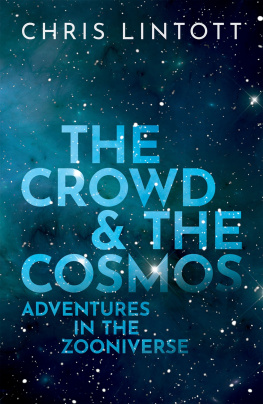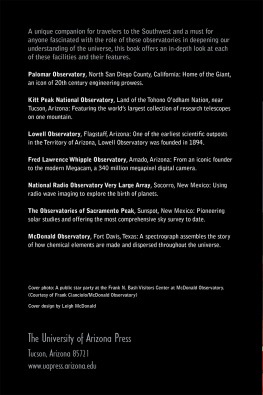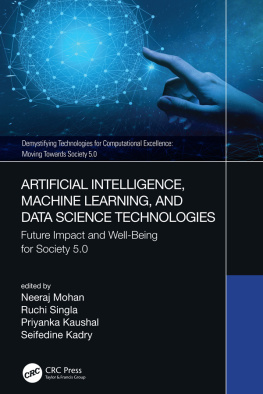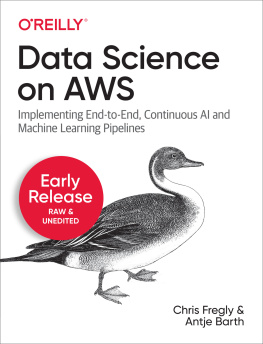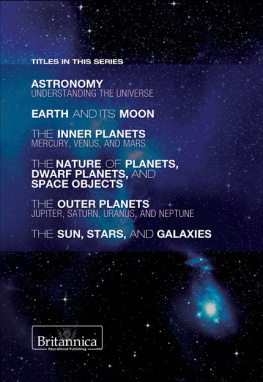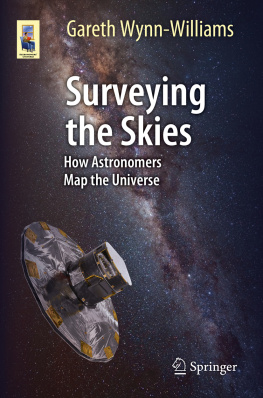The Crowd and the Cosmos
Praise for The Crowd and the Cosmos
The Crowd and the Cosmos is a superbly written insight into the unique and powerful contribution enthusiasts from all walks of life can make to scientific knowledge. it is also a fascinating and much-needed description of how we acquire reliable knowledge about Nature, from the search for planets and perhaps civilisations around distant stars to observations of Penguins in the Antarctic and what they can teach us about the impact we are having on our own world.
Brian Cox
Chris Lintott, is a modest genius. He has quietly revolutionised modern Astronomy (and a few other branches of science) by using digital platforms to involve the public in processing data. Essentially anyone who wants to contribute some of their spare time can, and is invited through Chriss Zoooniverse projects to do real science. Literally millions have taken up the invitation. This is a beautifully readable book, which tells the story of the Zooniverse and much more. Chris is delightfully anecdotal, inclusive and witty, yet never shirks in-depth explanations of the cutting edge science hes delivering to us, almost before we realise it! This is the New Age of Science for All!!!
Brian May
The Crowd and the Cosmos gives an authentic flavour of astronomical research and its appeal. But its especially significant because it offers a first-hand account of how Chris Lintott conceived and led the Zooniverse project, thereby enabling huge numbers to participate in significant research, and even make important discoveries. His pioneering initiative has spawned similar programmes in naval history, conservation, and other subjectstriggering a benign social revolution in scholarship and education.
Martin Rees

Great Clarendon Street, Oxford, ox 2 6 dp , United Kingdom
Oxford University Press is a department of the University of Oxford. It furthers the Universitys objective of excellence in research, scholarship, and education by publishing worldwide. Oxford is a registered trade mark of Oxford University Press in the UK and in certain other countries
Chris Lintott 2019
The moral rights of the author have been asserted
First Edition published in 2019
Impression: 1
All rights reserved. No part of this publication may be reproduced, stored in a retrieval system, or transmitted, in any form or by any means, without the prior permission in writing of Oxford University Press, or as expressly permitted by law, by licence or under terms agreed with the appropriate reprographics rights organization. Enquiries concerning reproduction outside the scope of the above should be sent to the Rights Department, Oxford University Press, at the address above
You must not circulate this work in any other form and you must impose this same condition on any acquirer
Published in the United States of America by Oxford University Press
198 Madison Avenue, New York, NY 10016, United States of America
British Library Cataloguing in Publication Data
Data available
Library of Congress Control Number: 2018967074
ISBN 9780198842224
ebook ISBN 9780192579546
Printed and bound in Great Britain by Clays Ltd, Elcograf S.p.A.
Links to third party websites are provided by Oxford in good faith and for information only. Oxford disclaims any responsibility for the materials contained in any third party website referenced in this work.
Contents
There is a faint star, dim and red, which shines feebly in the constellation of Aquarius. You would need a decent telescope to see it at all, and in all of humanitys history of studying the Universe no one bothered giving it a name. The star, recorded in catalogues as J23154776-1050590, is about 600 light years from Earth; not too far on cosmic scales, but close enough that the light we see now set off in the early fifteenth century, when King Henry Vs English army was fighting the French at Agincourt.
Andrew Grey is a car mechanic who lives in Darwin, in northern Australia. Hes also an amateur astronomer with a collection of telescopes used for stargazing under the clear desert skies, and in April 2016 he was the first person to realize that J23154776-1050590 was a star worth keeping an eye on. Every so often, the star does something odd. It winks, dimming slightly for an hour or two.
These winks reveal the presence of something that would otherwise be hidden. Theyre caused by the regular passage of a family of planets that happens to cross (or transit) the face of the star as seen from Earth. The effect is subtleplanets are small compared to stars, and a single wink results in a dimming of much less than 1 per cent of a stars brightnessbut we can see them, and the immutable laws of physics dictate that as a planet completes orbit after regular orbit around the star, that single dip will be followed by another exactly one orbit later, and another and then another, each adding to observers confidence that the planet really exists.
Thanks to Andrews ability to notice these small changes in brightness, we now know that J23154776-1050590 has at least five planets in its system. They crowd around the star, now given a shorter catalogue number: K2-138 (
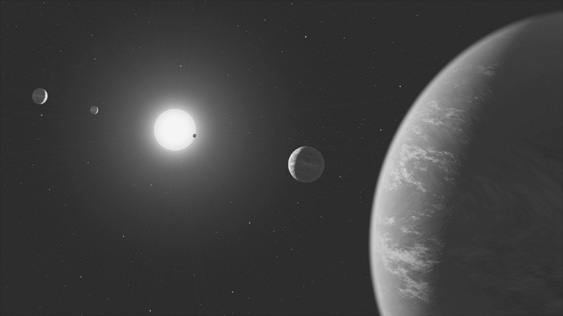
Figure 1 Artists impression of five worlds around K2-138, discovered by citizen scientists in the Exoplanet Explorers project.
For centuries, and perhaps longer, astronomers dreamt of discoveries like this. Yet finding new planets, and new solar systems, is now something that you can do at home. Andrews discovery was made not with one of his telescopes, but with a web browser. The star was one of many monitored by the Kepler space telescope, launched and operated by NASA, whose team gave the data it collected away for free. A team of astronomers at Caltech had looked for likely planets, and shared their analysis online via a website that allowed anyone to show up and help. A discovery that twenty years ago would have put you in line for the most prestigious prizes in science is now something that you, the reader of this book, might manage in an otherwise idle lunch hour.
Access to data from telescopes all over the world is now something that astronomers take for granted and, as it turns out that being open with each other means that were also open to the world, an increasing number of people are joining us in exploring the Universe. Consider Despina, an obscure moon of Neptune which was first discovered in images taken by the Voyager 2 space probe as it approached the ice giant in the summer of 1989. No other probe has passed this way, and so we know very little about Despina, other than the fact that its small, just 150 kilometres across, and that it lives just inside one of the planets dark rings. It is close enough to Neptune, in fact, that it is probably spiralling slowly inwards, compelled by the push and pull of tides induced upon it by the planets gravity.
One day it may fall apart completely, but for now, there it sits. Voyager 2 shot through the Neptunian system at high speed, and observations of the planet itself and the largest moon, Triton, were the priority. Beyond noting its existence, little was done with Despina in the short interval between discovery and fly-past, and so all we have had for the last thirty years are a small set of images that make it look like a speckled jelly bean.

